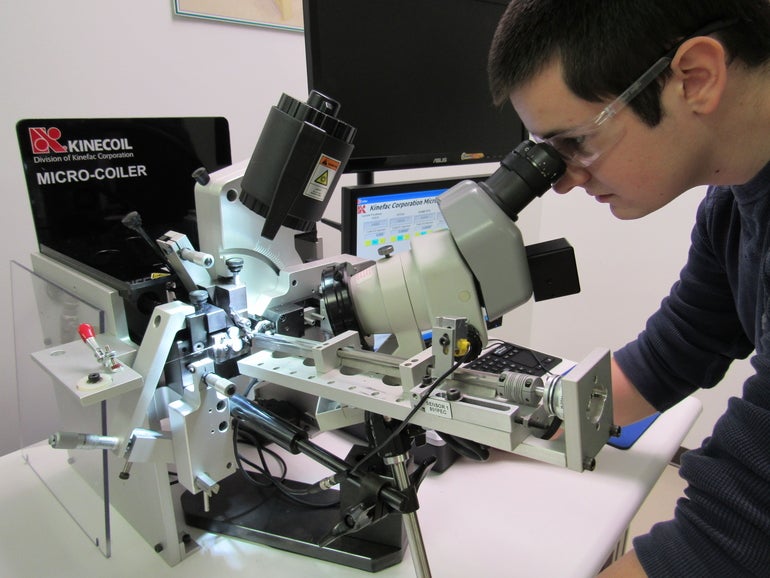As the number of job vacancies nationally nears 4 million, Central Mass. businesses push to find and keep workers.
Get Instant Access to This Article
Subscribe to Worcester Business Journal and get immediate access to all of our subscriber-only content and much more.
- Critical Central Massachusetts business news updated daily.
- Immediate access to all subscriber-only content on our website.
- Bi-weekly print or digital editions of our award-winning publication.
- Special bonus issues like the WBJ Book of Lists.
- Exclusive ticket prize draws for our in-person events.
Click here to purchase a paywall bypass link for this article.
For years now, recruiting and retaining employees has been a problem plaguing businesses throughout Massachusetts.
This persistent problem will be one of the core messages Brooke Thomson, president and new CEO of the trade group Associated Industries of Massachusetts, delivers in her first State of Massachusetts Business address on Jan. 16, where she will lay out the main concerns of AIM’s 3,400 member companies.

“The No. 1 issue continues to be the inability of employers to find qualified talent,” Thomson said during a December interview with WBJ. “It’s somewhat mind boggling.”
The healthcare and manufacturing industries have been most impacted, according to AIM surveys. Thomson has spent her last six months preparing to take on the CEO role by speaking with AIM member businesses, and across the board, finding enough staff to keep all operations churning is hard work.
“Manufacturers are really feeling the pinch of not having qualified talent,” she said. “They can’t get enough people on the floor to fill those shifts, and remote work isn’t really an option there.”
Remote work isn’t as much of a possibility in these fields, and workers are often needed around the clock.
Unemployment remains near historical lows throughout Central Massachusetts and the state as a whole. In November, the unemployment rate in the metropolitan areas surrounding Worcester, Framingham, Leominster-Gardner, and Athol was 3% or less, while the statewide average was 2.8%, nearly a full percentage point below the national rate.
The staffing challenge is not unique to Central Massachusetts, nor is it unique to these or any industries.
“We’re going to have a persistent worker shortage for the foreseeable future," said Curtis Dubay, chief economist at the U.S. Chamber of Commerce, said at a Greater Boston Business Chamber event at WBUR City Space.
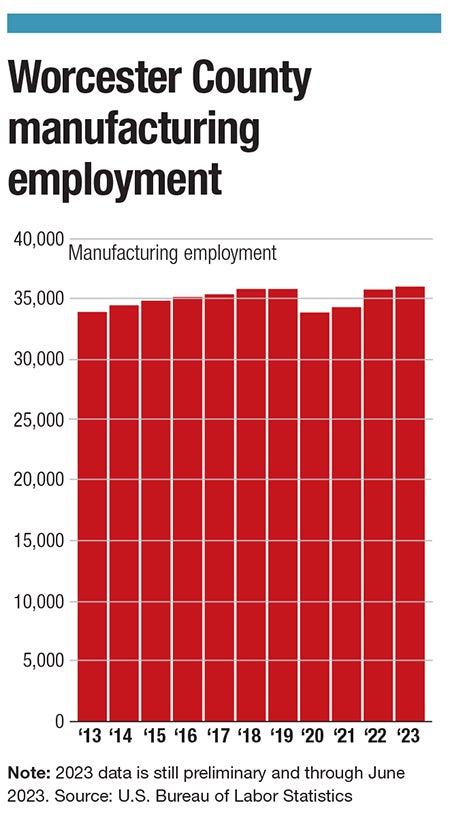
The shortage is largely a result of the mass retirement of the Baby Boomer generation. Subsequent generations are smaller and are not filling the void caused by the retirement wave, said Dubay. Nationally, there are approximately 3.5 million more job openings than available workers.
Manufacturing shortages
While the workforce shortage may have appeared for the majority of industries in the wake of the coronavirus pandemic, it has been an issue for years in the manufacturing industry.
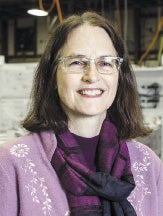
“Like other manufacturers, we are not immune to the headlines of challenges to the economy and business in general,” said Leslie Greis, co-owner of Kinefac, a precision metal manufacturer in Worcester.
Kinefac serves diverse industries, which is helpful, Greis said, as it means the company is more balanced and can participate in growth of the industries when they do take off. Greis is optimistic about what 2024 will bring for business, despite a level of economic uncertainty.
Finding qualified people on the abstract is not the problem, but rather, finding enough of those qualified people is a challenge, said Cathy Rocheleau, co-owner and director of Rocheleau Tool & Die in Fitchburg, a machinery and molds manufacturer.
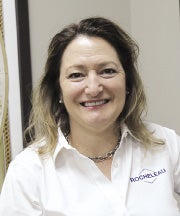
“That is true for both us and our vendors, as well as customers,” said Rocheleau.
The hiring challenge at all levels means it has a swirling impact on business, trickling up and down and impacting volume.
Rocheleau has found a silver-lining advantage in its ability to help understaffed customers, she said. Rocheleau staff know how to operate the machinery they provide to customers and can step in to help run it for them, benefiting both businesses and building a service relationship.
Despite the challenges, Rocheleau said the company is forecasting a 10% growth in staff for the year, paired with a 20% increase in revenue.
This growth of staff at Rocheleau’s fits with the regional trend. In Worcester County, manufacturing employment is at its highest level since 2018, according to data from the U.S. Bureau of Labor Statistics Quarterly Census of Employment and Wages. In 2022, the annual average monthly number of employees working in the industry was 35,715, up from 34,255 the previous year.
“It’s hard, but we’re making it work,” Rocheleau said.
Feeding the pipeline
Adding to the issue is the cost of living in Massachusetts, which is increasingly prohibitive to both businesses and individuals.
“We have a lot to do to not lose our competitive edge,” said Thomson.
Talent is leaving the state to go to more affordable parts of the country, along with other factors, like transportation limitations and the cost of childcare, which in Massachusetts is higher than nearly every other state, according to the U.S. News & World Report.
“We have to get a hold of those quality of life issues if we're going to keep the talent here,” said Thomson. “We’ve got some work to do to convince this generation to stay.”
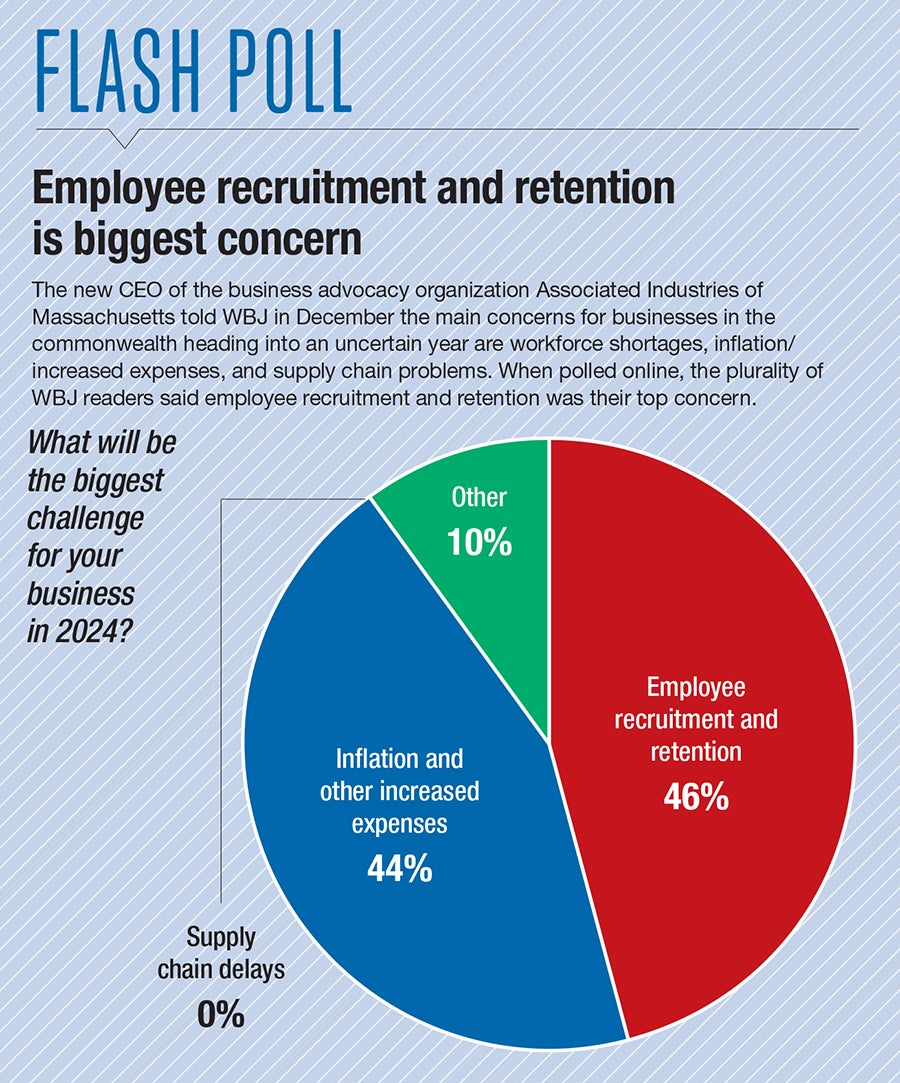
Despite the state’s drawbacks, the education pipeline in the state and in Central Massachusetts specifically is very promising, said Greis.
A diverse group of potential candidates come from different educational backgrounds, and a competitive economy is able to to support them. Developing a science, technology, engineering, and math (STEM) needs to be an infrastructure priority, she said.
Kinefac’s location in Worcester is an asset to the company because of this education pipeline, Greis said. Still, improvements are needed to produce qualified graduates, and more work is necessary on a policy level to prevent Massachusetts from repelling young workers.
“Manufacturing can be tough in Massachusetts because of the aggregate cost of doing business here compared to other states,” said Greis.
Some employers across industries have been waiting on more workers to become available, but that won’t work in the long term, said Dubay. Employers need to shift to a new strategy of accepting the wide gap between jobs and workers, he said.
Going forward, the U.S. will need to rely on the immigrant workforce more to fill vacant roles, as the U.S. born population is not on pace to fill on a population level any time in the foreseeable future, said Dubay.
Thomson had an additional suggestion to businesses struggling to fill roles that she said has already begun to help employers in the financial services industry.
“Can we change some of the qualifications, the narrative, to attract different folks to this industry?” Thomson said.
State House News Service contributed reporting to this article.
